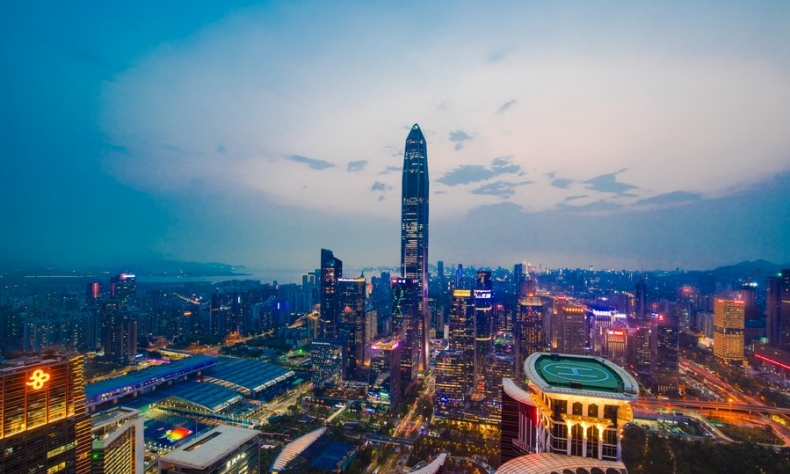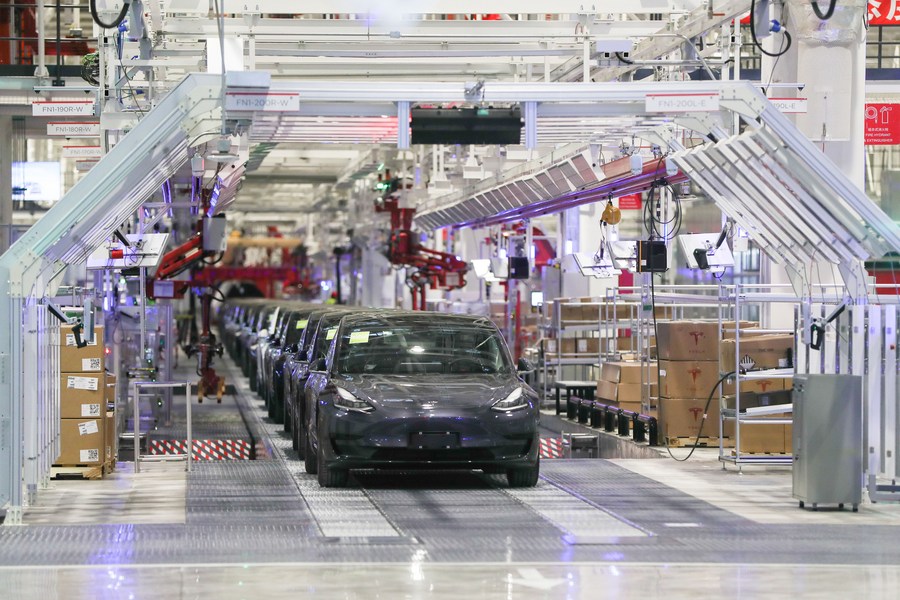Peter Walker: A Wealthier China Powers Global Growth

If you look at where economic growth has come from globally, I’d say over the last 10 years, the biggest economic contributor by far is China.
Editor’s Note: The year of 2023 marks the 10th anniversary of the China-proposed Belt and Road Initiative (BRI). What progress of the BRI has been made over the past decade? What does a richer China and the BRI mean for the world? Peter Walker, China expert and former senior consultant for a global consulting firm shares his insights into this topic in an interview with China Focus.
2023 marks the 10th anniversary of the China-proposed Belt and Road Initiative. What’s your take on the initiative?
Peter Walker: So, let me start by saying that if you look broadly at the Belt and Road Initiative and what it’s actually done, it has improved dramatically the quality of infrastructure in developing countries and enabling those countries to improve their economy at a faster rate. I just look at that and say that’s a noble objective and they’ve done reasonably well.
Now, anytime you launch something as broad and as complex and involving the funding of the Belt and Road Initiative, you’re always gonna have learning along the way, and you’re gonna make corrections to the model. So I was very happy to see that President Xi announced, I think this was probably 2 to 3 years ago, that one of the things they’re gonna change is how they evaluate investment opportunities in developing countries. It is gonna be much more focused on the ability of the country to repay. Because everybody loses if a country can’t repay. And if they have to give up physical resources or go into debt at a level that creates tension, then the overall objective of the Belt and Road Initiative is not gonna be met. People are gonna be unhappy. So I think it was very constructive for Xi to basically say, we want to evaluate carefully country’s ability to repay. Then the second thing he said [was] that we are committed longer term to environmental sustainability, we want to support projects that are consistent with that. Everybody knows in the short term; a number of countries have no choice from an energy point of view but to use coal. But it should be done with a vision longer term of becoming more focused on sustainable sources of energy.
In recent years, some Western politicians have ramped up the “decoupling from China” rhetoric. How do you evaluate those practices of decoupling?
Peter Walker: First of all, decoupling is a truly bad idea. Politicians do not understand that. Because for them, it sounds like another way to bash China. And therefore, they hop on the bandwagon. But if you sat down with a typical congressman and said, what are the implications for supply chains and ultimately inflation rates in the U.S., most of them would not have a clue. Ok? So the group we need to stand up and be heard in the U.S. are the corporations. If you would go to CEOs of major corporations and say, why don’t you replace your supply chains with China? They would say, we have been building those supply chains over the last 25 years. They enable us to produce our product for 10 percent less. If we had to change supply chains, we’d probably go through a minimum 5-year rebuilding period. And whether we would come out of it with lower cost goods is unclear. So the real tradeoff is, do you want to increase inflation, which is also already running at a pretty high level in the U.S. by another three or four points, by decoupling supply chains? It makes no sense.

And on the other side of the coin is U.S. companies want access to the Chinese consumer market. That’s incredibly…and there are many U.S. companies that have figured out how to do business in China in a way that’s consistent with the Chinese way. It’s a total win-win. If you look at how Apple and Procter & Gamble and Coca Cola and KFC, all these companies are very successful in China. In part, it’s because they understand how China works, what China’s priorities are and that the government is all powerful. And so they know that, and so everything they do is based on an insider’s knowledge of how China works. China looks at the results and say we like what you’re delivering for our economy, and the American companies look at the profits they make in China. And it’s a total win-win.
Is China still important to the world economic recovery? What do you think a richer China would mean for the world?
Peter Walker: I would go beyond saying it’s important to the world economy, I’d say it’s central to the world economy. In other words, if you look at where economic growth has come from globally, I’d say over the last 10 years, the biggest economic contributor by far is China. Countries in the West are largely chugging along at GDP growth of somewhere around 2-3 percent. China for many years, moving along at 6-8 percent, now is slowed down. Obviously, the Russia-Ukraine conflict, and what that’s doing to the energy sector is a huge contributor. But I think most economists would say, if you took China out of the global economy, the economic consequences would be huge. So the other thing that’s obviously pretty essential is trade. China is by far the biggest trading partner in around the world. If all of a sudden, those trading volumes started drying up, the impact would be huge on the Chinese economy, but it would also be huge on many other countries.
China has, because it’s done so well economically, been able to accelerate its investment in advanced technologies at a very impressive rate. So China, which has always been known as the manufacturer of the world, is quickly becoming a technological leader in a lot of areas. So if you look at telecom, Huawei and 5G; if you look at electric vehicles, where the number sold in China dwarfs the number sold anywhere else; if you look at quantum computing, where China is a leader; if you look at artificial intelligence, most experts would say China is at least the equal of the U.S. and it’s investing a lot more…So the other thing that’s gonna be important for China and the rest of the world is to accelerate the technological advances in all of the areas that are driving the economy of the future. Obviously, where China is hurting is nano-chips because of the sanctions that have been put in place. But there are many other areas where they are already leaders. So if China gets back to 6 percent GDP growth, given the scale of its economy, the second order effects about growing the consumer market, which will become increasingly international and also accelerating the pace of innovation in these key ten technologies, [it] would also have a very significant benefit for the world.
 Facebook
Facebook
 Twitter
Twitter
 Linkedin
Linkedin
 Google +
Google +










